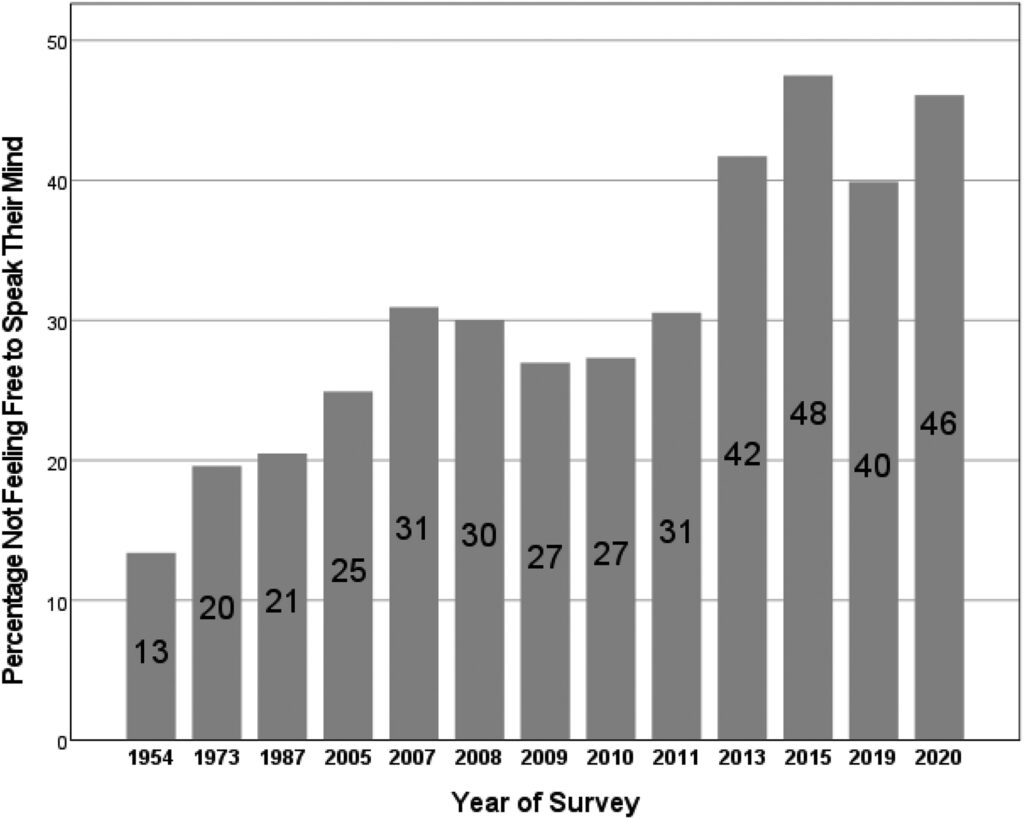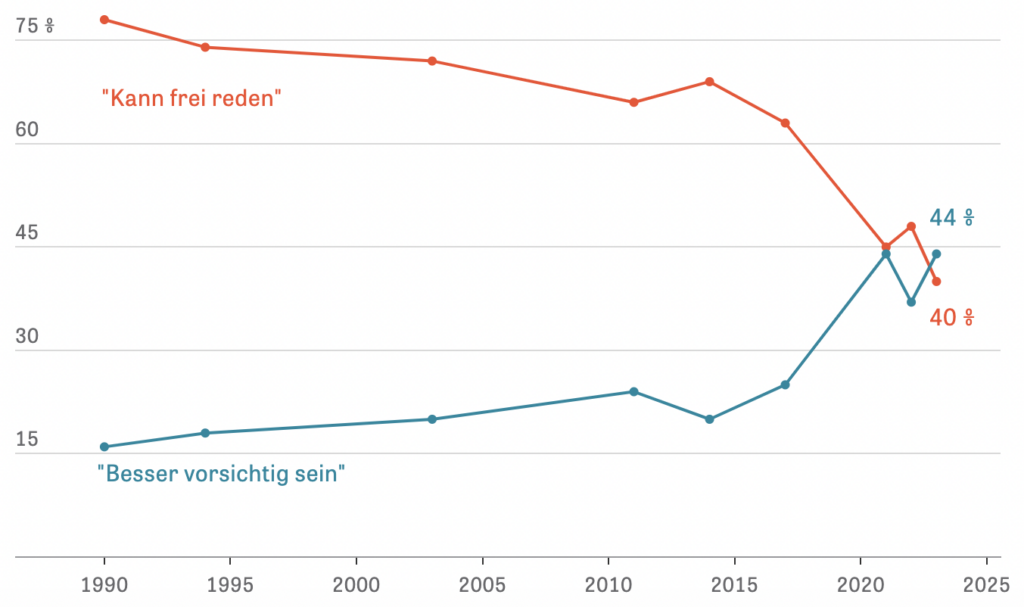We know that large percentages of academics and students refrain from expressing their views on certain topics for fear of being denounced, mobbed or formally sanctioned. Self-censorship on campus is frequently discussed in the media – and rightly so. But what’s the situation in the population at large? And how has it changed over time?
Recently, two relevant studies came to my attention. The first is from the United States. In a paper published last year, James Gibson and Joseph Sutherland collated all the surveys they could find that had asked Americans a simple question: “What about you personally? Do you or don’t you feel as free to speak your mind as you used to?”
This question is not necessarily ideal, though it has the advantage that it was first put to the American people way back in 1954 by the sociologist Samuel Stouffer – which permits the study of long-term trends. When the authors plotted the percentage who said they did not feel free to speak their mind over time, this is what they found:

There is a clear increase in self-censorship. (Although note that the years on the x-axis are not always consecutive because they represent the specific years in which surveys were available.) In 1954, only 13% of Americans said they did not feel free to speak their mind. By 1987, this had grown to 21%; by 2011 to 31%; and by 2020 to 46%.
So around half of Americans say they don’t feel free to speak their mind. And interestingly, a substantial portion of the change since 1954 has occurred over just the last 10 years – corresponding to the Great Awokening.
The second study that came to my attention is from Germany. Researchers from the Allensbach Institute for Demoscopy asked a sample of Germans, “Do you have the feeling that you can express your political opinion freely in Germany today, or is it better to be careful?”
This is a question they first post back in 1953 (in West Germany), although unfortunately the figures published in the study only go back to 1990 (the year of reunification). Here’s what the researchers found:

Here too, there has been a marked rise in self-censorship. Back in 1990, only 16% of Germans said it’s better to be careful. By 2017, this had grown to 25%; and by 2023 to 44%. Like in the United States, almost half the population say they don’t feel free to express their political opinions, with a large portion of the change having occurred over just the last 10 years.
Interestingly, the researchers found that only among Green voters was there a majority who said they can express their political opinions freely. Among supporters of the Alternative für Deutschland party, 62% said it is better to be careful. This Left-Right divide is also present in the U.S., where Republicans are much more likely to refrain from saying these due to the political climate.
Since the start of the Great Awokening in 2012 or thereabouts, Americans and Germans have become much more likely to self-censor. And the same is almost certainly true in other Western countries. So much for the liberal West.













To join in with the discussion please make a donation to The Daily Sceptic.
Profanity and abuse will be removed and may lead to a permanent ban.